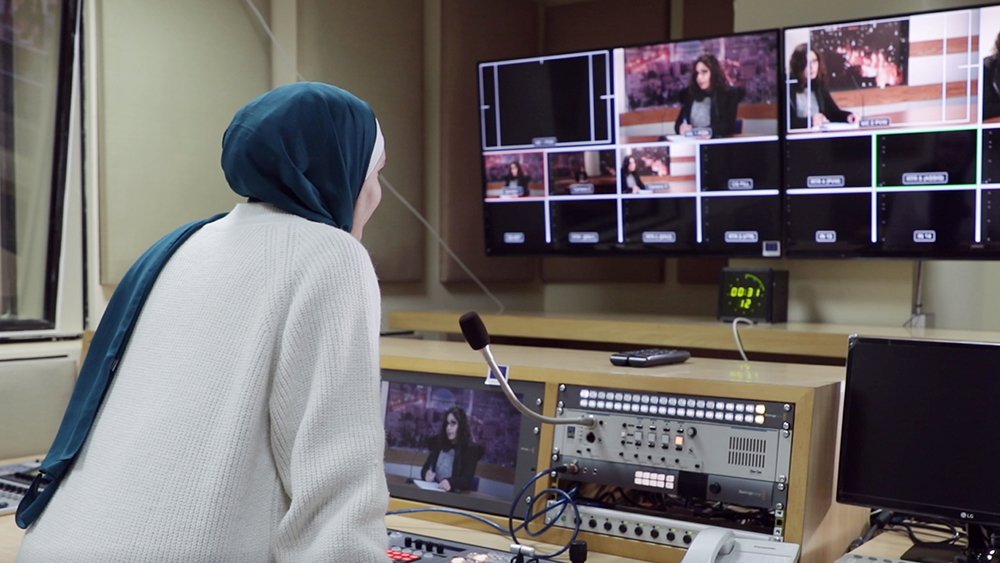
JMI – Amman
A group of female students at the Jordan Media Institute (JMI) has completed an intensive three-week training program, to enable them in producing specialized content related to community issues. Simultaneously, the production of this content highlights the role of women in leading the media scene.
The students engaged in 4 training workshops of three continuous days each, in collaboration with the Forum of Federations and supported by the Canadian government. The workshops focused on creative journalistic writing skills, filming and editing, news stories and in-depth reports. The students also practiced examples of media literacy and the professional methods of submitting topics of concern to society, from the gender perspective.
The students’ final project from the training series involves the production of specialized content reflective of the flexible journalistic skills they acquired. This project documents the role of women in developing their communities, and focuses on women’s needs and decision-making.
Trainee Ruqayya Qallab stated that the workshops “increased our skills and capacities as we started to look at journalistic material from a different and more critical angle. Accordingly, if this material was inaccurate or contradictory to journalistic ethics, we became able to correct and reproduce it and subsequently direct it to the audience again, based on our new-found knowledge of in-depth media literacy.”
“We did exercises which helped us distinguish between impression and description during work, through the utilization of creative journalistic writing like the story, which gives space to the reporter to convey feelings in addition to facts,” she further elaborated.
Another trainee, Shereen Alsaghir stated that “things have become simpler…we learned how to brainstorm and think critically, and are excited to read more.”
Her colleague, Haya Alda’ja remarked that “the course was important for anything related to the fundamentals of writing, communication and media and understanding the concept of gender more comprehensively,” adding “the course facilitated critical thinking which is harmonious with our mission as reporters.”
“To be able to create your TV journalistic content, from A to Z, on your own, means being able to expand your view towards what you observe and what you are concerned with,” elaborated Ola Alqarsli, one of the trainees and a Masters degree student in the Journalism and New Media program at JMI.
Meanwhile, Furat Alomoosh commented that “whenever I realize I can capture a story and present it to people professionally and in a manner that benefits and serves them, I get more encouraged to create a specific content suitable to the story.”
JMI delivers a Master’s degree program in Journalism and New Media. Ten classes have graduated from the program so far. JMI also provides specialized training programs which have benefited more than six thousand journalist trainees, in addition to activists on various issues in Jordan and the Middle East, who are working on the development of media content locally and globally.



